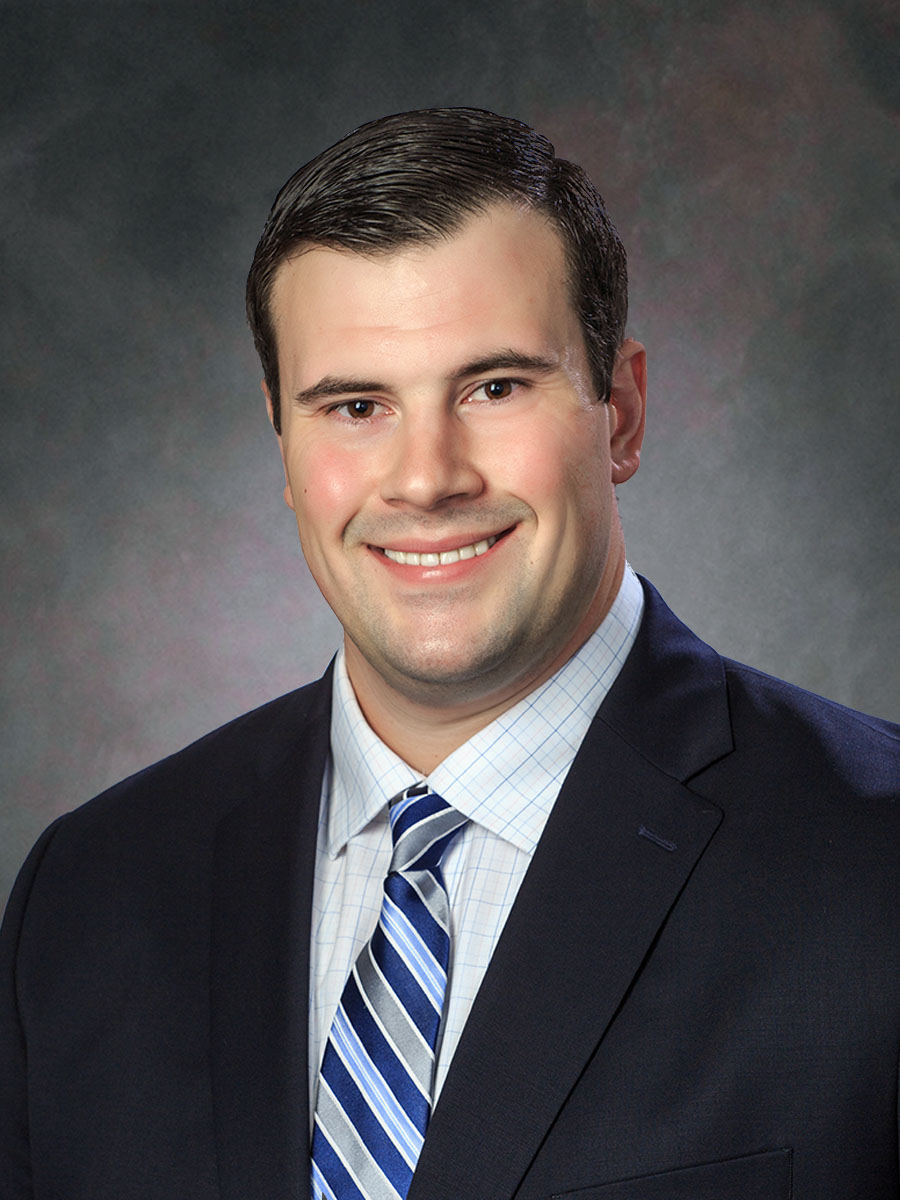
Andrew T. Babin, CFA, is a Senior Research Analyst covering real estate — apartments, health care, manufactured housing, single-family rental and student housing — at Robert W. Baird & Co.
Prior to joining Baird in 2014, he was a senior financial analyst at CBRE Clarion Securities for eight years and covered several types of real estate. He also worked at Dwight Asset Management.
Mr. Babin was recognized as a “Rising Star” in Institutional Investor magazine’s 2016 Rising Stars of Wall Street list. He received a B.A. in economics from Middlebury College.
In this 3,862 word interview, exclusively for the Wall Street Transcript, Mr. Babin advises investors to find some high quality, undervalued names in the sector he covers:
“I would say DOC, which is our best idea, Physicians Realty, that’s a name that to us just seems very undervalued given the quality of its portfolio. They’ve drastically improved their investment-grade tenancy.
We think that they get somewhat of a bad rap for having lower on-campus medical office exposure than some of their peers. But given the strength of the systems they do business with, as well as the fact that private capital, international capital, has been very interested in this sector — what we’ve found is that yields in the U.S., while low by our standards, are still higher than they are in other places in the world, and foreign capital still remains very interested.
And so you look at a name like Physicians Realty, that’s only slightly over a $3 billion market cap, trading right around net asset value and at a lower multiple than the other pure-play medical office names.
I think that public-private value dislocation could become closed in a hurry if some of that private interest manifests or if management decides to sell assets and buy back stock. That’s a name that we think there’s a lot of option value on if you really get a big private equity play for medical office. And so they may be more of a value idea.
TWST: So Physicians Realty is your best idea. What would your other top picks among the health care REITs be right now, and why?”
Get the rest of Mr. Babin’s high yielding publicly traded real estate names in this exclusive 3,862 word interview, only in the Wall Street Transcript.

David Robertson, CFA, is the CEO and lead Portfolio Manager for Arete Asset Management, LLC. Mr. Robertson has analyzed stocks for 30 years across a wide variety of sizes and styles. Early in his career, he worked on a sophisticated discounted cash flow valuation model that shaped his skill set and investment philosophy.
He has worked at Allied Investment Advisers and BlackRock among other money management firms. He majored in math with extensive studies in economics and philosophy at Grinnell College. At Northwestern’s Kellogg School of Management, he majored in finance, marketing and international business while completing the CFA program concurrently.
In this 2,807 word interview, exclusively for the Wall Street Transcript, Mr. Robertson details the investment logic that has led him to his current top picks:
“The sector that I find most interesting right now is gold mining, for a number of different reasons, not the least of which is it’s a classic value case, or at least it has been, excepting the last month or two.
Everybody hates it; it’s out of favor. The companies haven’t been performing well, operationally. So just about everything you look at has been pretty ugly.
Certainly, from a contrarian standpoint, they’re interesting. But then you look longer term in terms of what’s happening with money supply globally, the policies that are in place and the trends toward the likelihood of further increases in money supply globally, the diminishing supply of gold in the ground — at least I’ve arrived at a conclusion where I think it’s quite likely that the price of gold has to go up and probably a fair amount.
And because it’s been so hated, the sector has been so hated, it’s actually one of the areas where you can buy stocks — at least, again, up until very recently, you’ve been able to buy them very cheaply because nobody’s wanted them.”
Get the complete 2,807 word interview, only in the Wall Street Transcript.
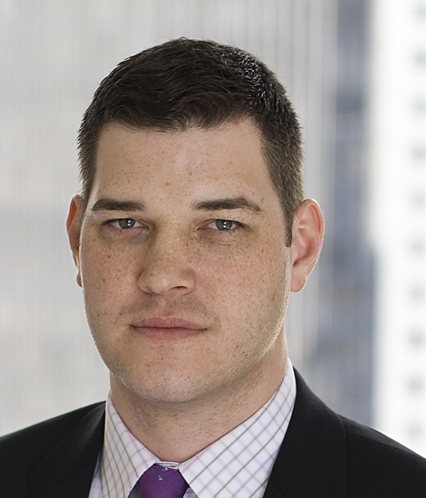
James W. Gaul, CFA, is Senior Vice President and Portfolio Manager at Boston Advisors. As a member of the Institutional Equity Team, he is lead portfolio manager on the firm’s Small Cap Growth and Large Cap Core strategies.
Mr. Gaul has more than 20 years of industry-related experience, including investment banking, sales and trading, and investment management. Earlier, he was an institutional fixed income sales professional with Commerce Capital Markets, Inc. and Advest, Inc. He received a B.S. degree in investments from Babson College and an M.S. degree in investment management at Boston University’s Questrom School of Business.
In this 2,922 word interview, Mr. Gaul explains his firm’s idiosyncratic approach to picking stocks that will beat the market:
“…We employ, what we refer to as, a hybrid quantitative-qualitative approach. So our process starts with a proprietary quantitative model that we use to identify attractive candidates. This is a balanced model. We’re looking for well-rounded stocks.
Our model looks at a wide array of factors from valuation, earnings quality, growth and profitability, investor sentiment. We rank stocks on a decile system, so we rank them one through 10. Ones are the best, 10s are the worst, and we can buy stocks from the top three deciles.
Now, unlike most quantitative managers, who would then optimize a portfolio against the benchmark, the next step in our process is to apply qualitative or fundamental analysis at the company level so that we can meld the experience and context that the portfolio managers are able to provide into the rigor and discipline of the quantitative model.
So as we like to say, the portfolio managers are the optimizers.”
The current market poses an interesting situation for the firm:
“In the short term, while we see a slowing economy, we don’t see an imminent recession, and there may be outside influences on the U.S. yield curve right now that are exacerbating this interest rate move, specifically the existence and folly of negative interest rates in Europe.
But it is certainly a notable event when the yield curve inverts. And so it is something that we and the rest of the investing world are keeping an eye on.”
Get the complete picture from Mr. Gaul by reading the entire 2,922 word interview, only in the Wall Street Transcript.

Peter C. Andersen, CFA, is Founder of Andersen Capital Management, LLC. He has been managing money for a wide range of clients since 1993. He has managed separate accounts and over 10 mutual funds throughout his career, including IPOs for two NYSE-listed closed-end funds. He has written over 100 articles for Forbes magazine. He is also a regular contributor to CNBC and Fox Business.
A graduate of Northeastern University, Mr. Andersen received an MPA degree from Harvard University and an M.S. degree in physics from Yale University. He is on the board of the Boston Symphony Orchestra and is a member of the Investment Committee, the Nominating Committee, and Chairman of the Annual Funds. He also is on the board of the Peabody Essex Museum.
In his exclusive 2,984 word interview, only in the Wall Street Transcript, Mr. Anderson appears less anxious than most about the current yield curve inversion:
“The thesis says anytime a curve looks like it’s going to invert and becomes inverted, that portends a recession. And the data just doesn’t back that up. It’s not a scientific fact, like gravity, that if I drop a stone, I know it will hit the ground.
With mathematics applied to economics, we have to interpret it and use it more loosely than we would a science. Economics is not a science; this is a social science. And I would advise your readers, your subscribers to take that into effect and look at these readings but not necessarily immediately conclude that they are always accurate and that they lead to 100% predictions of dire consequences like recessions.”
The specific stock picks are interesting and idiosyncratic:
“With the increased global geopolitical tension, the U.S. government spends a lot of effort and funding on consulting services because they need the expertise of highly trained mathematicians, engineers, weapons production, all of that.
And they outsource that kind of work to a consulting firm such as Booz Allen Hamilton, which oversees the whole implementation of, say, manufacturing, when contracts are awarded to companies like Raytheon (NYSE:RTN), etc.
They oversee the management of that production. And they have some of the smartest mathematicians, engineers in these companies that help protect us and project what the next steps should be.”
Get more of Mr. Anderson’s top picks by reading the entire 2,984 word interview, only in the Wall Street Transcript.
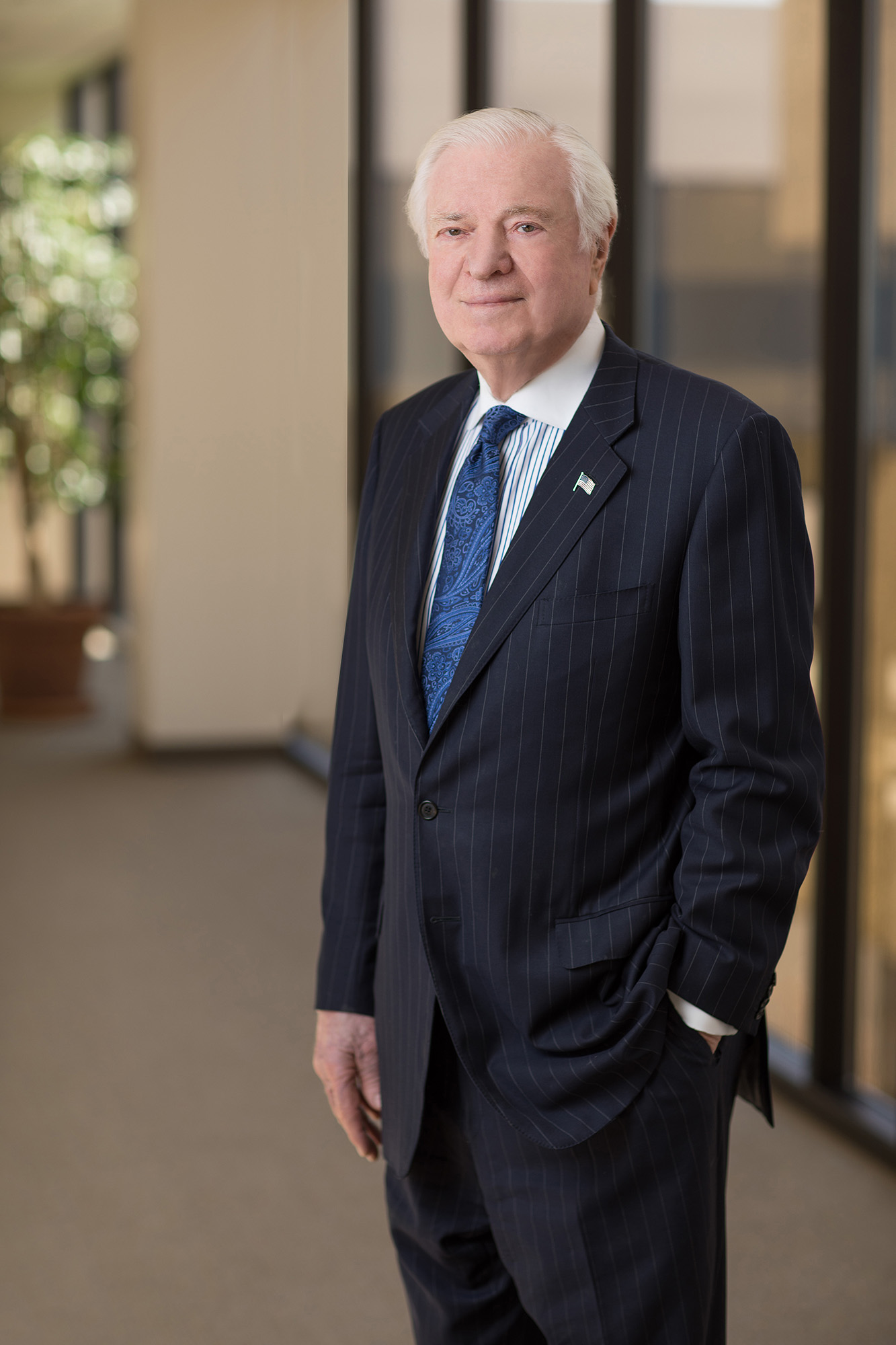
Alan B. Miller is Chairman and CEO of Universal Health Services, Inc., which he founded in 1979. UHS, a Fortune 500 company and one of the largest hospital management companies in the nation, owns and operates more than 350 facilities in 37 states, Washington, D.C., Puerto Rico and the United Kingdom.
Mr. Miller also serves as Chairman and CEO of Universal Health Realty Income Trust (NYSE:UHT), a REIT that he founded that currently has investments in 65 properties located in 20 states. Prior to founding UHS, Mr. Miller was Chairman and CEO of American Medicorp Inc.
Mr. Miller has received numerous awards for his business and charitable activities. He was named Entrepreneur of the Year in 1991 and Financial World named him CEO of the Year in hospital management. He has been named by Modern Healthcare as one of the “100 Most Influential People in Healthcare” for 16 years, 2003 to 2018.
In this 1,900 word interview, exclusively in the Wall Street Transcript, Mr. Miller details his winning formula in this heavily regulated specialty real estate sector.
“In total, we have 300 behavioral health facilities, in addition to the 27 acute care. We have over 200 in the U.S. and 100 in the U.K. Our reputation in the U.K. is also excellent, and the business is growing.
We are particularly interested in the armed services, serving veterans and their families should they need mental health support. They’re in a very stressful situation, and we support them as well with a particular program designed for them.
Our revenues this year will be well over $11 billion. As I said, we have over 87,000 employees, the number of which is growing, and we provide care to 2.6 million patients every year.”
The intention is to continue the opportunistic growth pattern:
“…With a record of success and reliability, we have more capabilities in terms of outside banks than we can deal with. We have a very substantial bank line.
We generate almost $750 million a year in free cash. So we have no problem financing. And we are extremely conservative, debt/equity ratio below 40, so we’re very low levered. And it leaves us in a situation where we can build, for example, Henderson Hospital or Palmdale — over $200 million to build a first-rate acute care hospital — and we have no problem financing those.”
Get the complete 1,900 word interview only in the Wall Street Transcript.

Andrew T. Babin, CFA, is a Senior Research Analyst covering real estate — apartments, health care, manufactured housing, single-family rental and student housing — at Robert W. Baird & Co.
Prior to joining Baird in 2014, he was a senior financial analyst at CBRE Clarion Securities for eight years and covered several types of real estate. He also worked at Dwight Asset Management. Mr. Babin was recognized as a “Rising Star” in Institutional Investor magazine’s 2016 Rising Stars of Wall Street list.
In this extensive 3,862 word interview, exclusively in the Wall Street Transcript, Mr. Babin demonstrates his immense ability to pick stock market winners in this difficult to analyze sector.
“I also cover medical-office-focused names, such as Physicians Realty (NYSE:DOC), and then further down the market-cap spectrum, Global Medical REIT (NYSE:GMRE) and Community Healthcare Trust (NYSE:CHCT) that do a little more secondary markets or non-investment-grade investments in medical office and other sectors at higher yields.
In addition, we cover Senior Housing Properties Trust (NASDAQ:SNH), which is a bit more diversified, as well as Medical Properties Trust (NYSE:MPW), which does hospitals.
Recently, I should add, we launched on a name, New Senior Investment Group (NYSE:SNR), which is pure-play senior housing. And what’s interesting about them is they’re almost entirely a RIDEA senior housing format, where they pay a management fee to the manager and basically own the end economics of all their properties.
So when the senior housing business recovers, they should benefit disproportionately from that and have some pretty exciting earnings growth.
Those are the names that we cover in health care. In addition, we cover the apartment REITs, almost all of them, as well as ACC(NYSE:ACC) on the student housing side, the manufactured housing names and the two big single-family rental REITs, Invitation Homes (NYSE:INVH) and American Homes 4 Rent (NYSE:AMH).”
Get the complete analysis of these and many other medical real estate sector economic issues by reading the entire 3,862 word interview, only in the Wall Street Transcript.
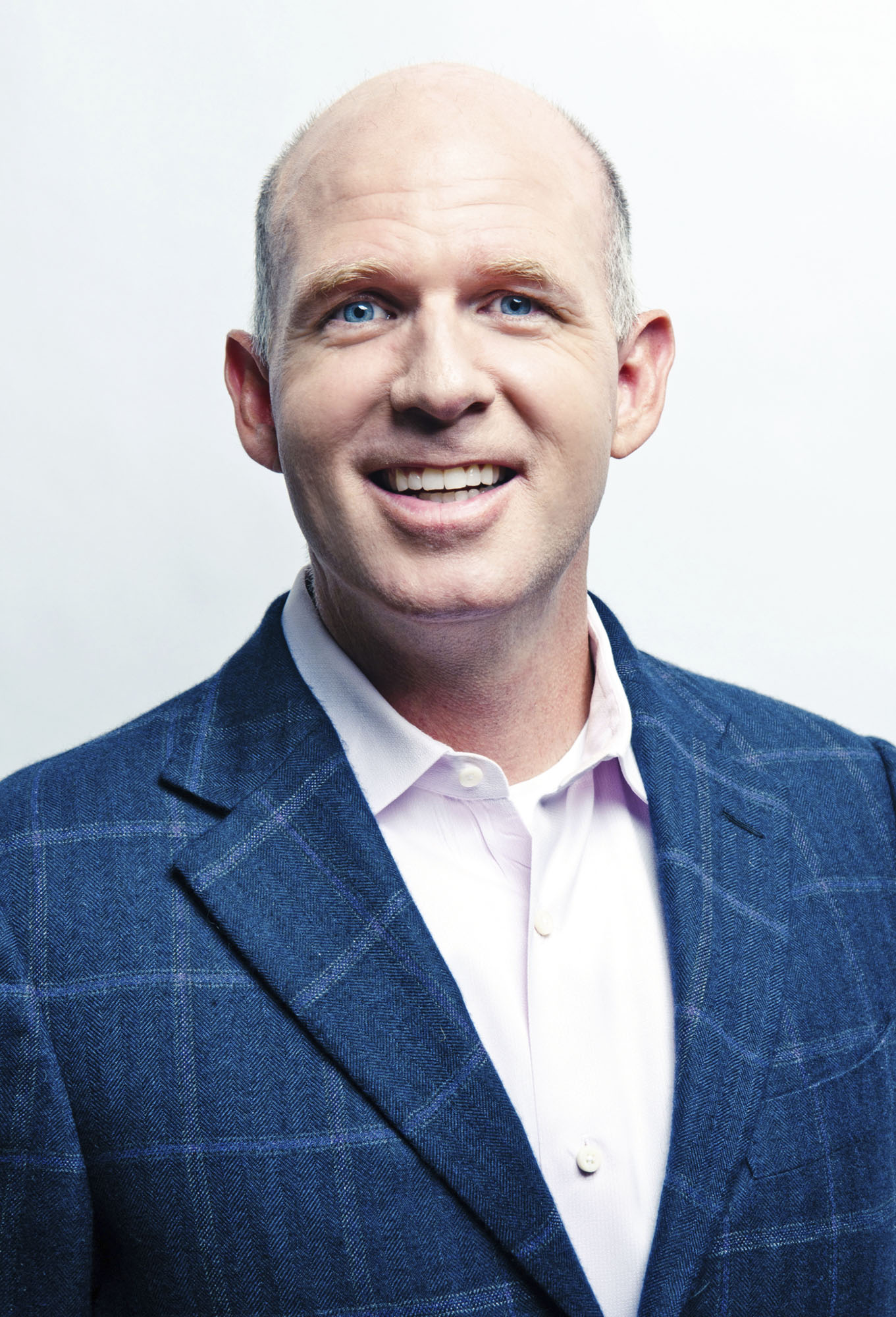
Michael T. Cartwright has served as Chairman of AAC Holdings, Inc.’s board of directors since 2011 and as its Chief Executive Officer since June 2013. Mr. Cartwright has almost 23 years of experience in the addiction treatment industry.
In 2009, Mr. Cartwright co-founded Performance Revolution, LLC, dba FitRx, a company focused on weight management, and served as its CEO until it merged into Forterus, Inc. in 2011. In 1999, he founded Foundations Recovery Network, LLC, a national alcohol and drug treatment company, and served on its board of directors and as its President and CEO until 2009.
In this 4,589 word interview, exclusively in the Wall Street Transcript, Mr. Cartwright explores the intrinsic value of his firm and it’s near term prospects as a publicly traded company:
“I started in the field in 1993 working in the inner city of Nashville at a place called the Mental Health Cooperative and started out as a case manager primarily working with people with schizophrenia and addiction in the inner city.
And at that time, if you recall, there were a lot of people being deinstitutionalized from psychiatric facilities, hospitals. Are you familiar with the movement in the 1990s to deinstitutionalize a lot of our mentally ill patients across the United States? It happened quite a bit in the 1990s.
…one thing I really noticed — because I myself was misdiagnosed when I was 18 years old and experienced treatment myself — one of the things that I noticed with a lot of patients that had psychosis or were deemed schizophrenic was that they were almost not allowed to go into addiction treatment centers.
In the 1990s, you couldn’t send somebody with schizophrenia to Hazelden or Betty Ford Center. They wouldn’t take them.
So I opened up a place called Foundations in 1995 to really focus on people with schizophrenia and addiction, and we did lots and lots of research on the best ways to help somebody who was severely and persistently mentally ill but who also had an addiction issue…”
Get the complete picture on how Mr. Cartwright built his medical treatment facility chain and the challenges it is facing today in the entire 4,589 word interview, only in the Wall Street Transcript.

Matt Larew is an Analyst who joined William Blair & Company, L.L.C. in September 2012 and primarily focuses on health care delivery companies. In 2018, Institutional Investor named Mr. Larew a Rising Star for the All-America Research Team.
Before receiving an MBA in finance and a Master of Health Administration from the University of Iowa, Mr. Larew completed his undergraduate studies at the University of Notre Dame, where he earned a B.S. in biological sciences.
In this 2,365 word interview, exclusively in the Wall Street Transcript, Mr. Larew sees some clear winners in the sector:
“I think HCA (NYSE:HCA) appears likely to continue to look for consolidation opportunities. The hospital sector in general is much more consolidated, and that’s largely in the hands of many nonprofits.
But in the last year, we’ve seen a number of fairly large-scale mergers among some fairly large hospital operators — like CHI Dignity, Advocate Aurora here in the Midwest. But the hospital sector is a little more consolidated.
On the non-hospital side — think of home health and hospice operators — those are highly fragmented markets, so even the largest operators in the space own less than 5% national market share.
So there is a much larger opportunity there, and we expect names like Amedisys (NASDAQ:AMED), LHC Group (NASDAQ:LHCG) and Encompass Health (NYSE:EHC) to find smaller tuck-in assets that they can add to fill in their national footprint where it makes sense.”
The demographic trends are clear:
“The under-65 population in the U.S. is not growing, it is growing less than 1%, and that is expected to continue, and so the growth outlook for providers is muted compared with the providers that are more specifically focused on the elderly population.
We expect that to continue in the future.”
The government reimbursement specifics are driving much of the economics:
“…An acceleration in shift to Medicare Advantage from Medicare…And the incentives really are different as the patient moves from Medicare, where the government is just reimbursing on a fee-for-service basis, to the Medicare Advantage side, where payers — like UnitedHealth (NYSE:UNH) or Aetna or Humana (NYSE:HUM) — are paid a fixed or capitated amount for a patient and are then responsible for their care and, of course, any costs associated with that care.
So they become highly incentivized to, for example, keep patients out of the hospital, where the average hospital admission for Medicare is $14,000 to $15,000.
And the reason this is important is that you have an opportunity to then leverage non-hospital settings — using the home, using retail settings — to get more touch points with these polychronic, high-cost patients to help drive down their costs and simultaneously improve their health.”
Get the full picture of this important sector by reading the entire 2,365 word interview, only in the Wall Street Transcript.
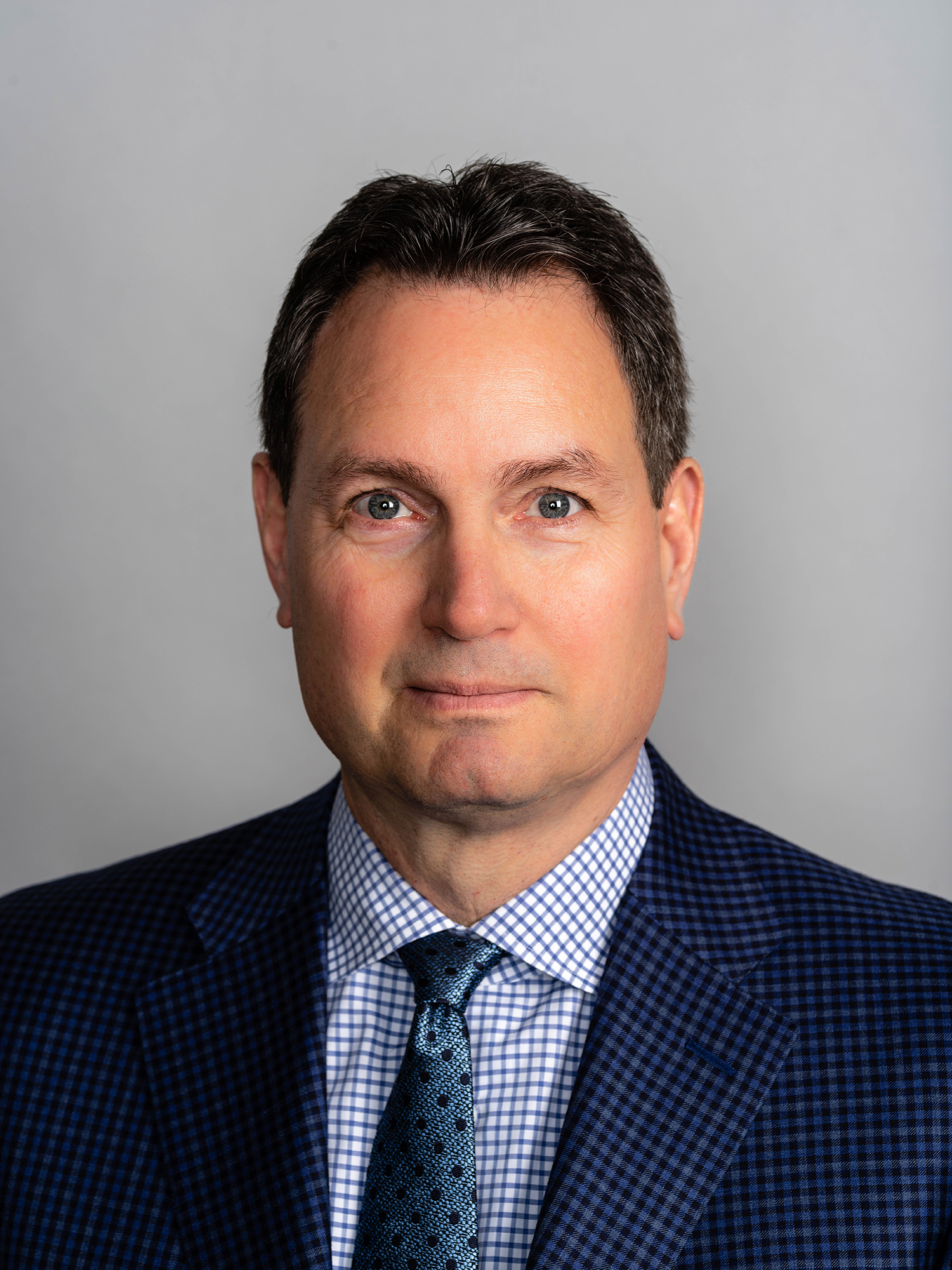
Eric Mendelsohn is the President and Chief Executive Officer of National Health Investors, Inc. He has more than 20 years of health care real estate and financing experience.
Previously, Mr. Mendelsohn was with Emeritus Senior Living for nine years, most recently as a Senior Vice President of Corporate Development, where he was responsible for the financing and acquisition of assisted living properties, home health care companies and executing corporate finance strategies.
Prior to Emeritus, Mr. Mendelsohn was with the University of Washington as a transaction officer, where he worked on the development, acquisition and financing of research, clinic and medical properties. Prior to that, he was a practicing transaction attorney, representing lenders and landlords.
In this 2,213 word interview, exclusively in the Wall Street Transcript, Mr. Mendelsohn details how to create a successful medical real estate business.
“We currently have over 240 properties, and as I said, most of them are in senior housing. We try to curate our mix, if you will, but being a REIT is a very opportunistic business. You have to play the cards that you’re dealt, and the types of deals that you want to do are not always available or not always available at a price that makes sense for your cost of capital.
We try very hard to make all of our acquisitions accretive. There is a school of thought where an acquisition doesn’t need to be accretive in the beginning and that you’ll get a return through property appreciation.
Some REITs are exploring that as a business model, but we are very conservative with our investment philosophy and believe that we should only pay a price that allows us to make money year one based on our cost of capital.
The second part of your question, if I had to pick a property type that I could focus on, I would really like to explore owning more behavioral health.”
Read the entire 2,213 word interview and get the full disclosure from this successful dividend payer.
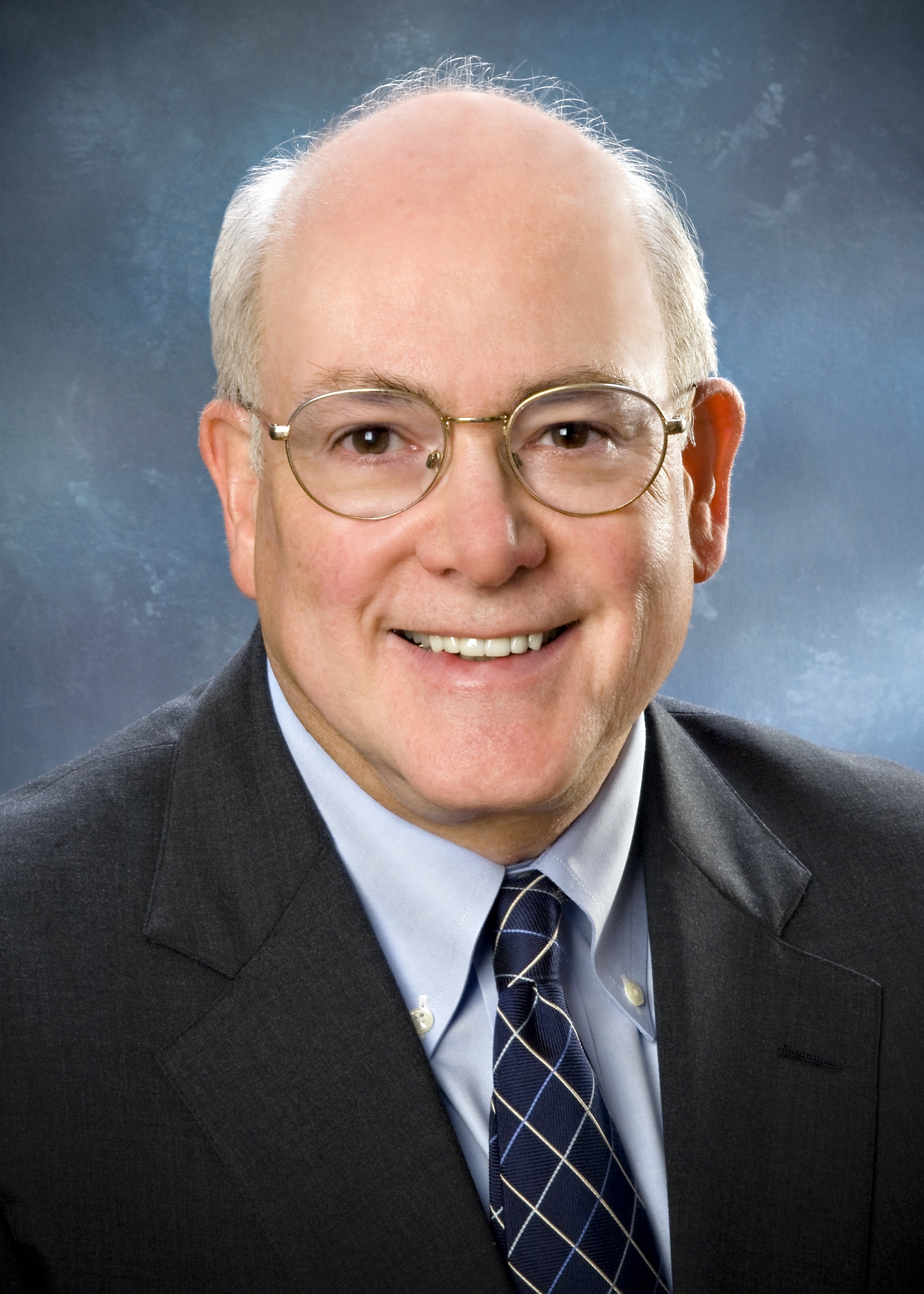
John Dorfman is Chairman of Dorfman Value Investments LLC, which he founded in 1999. He is a hands-on money manager with over four decades of financial industry experience. He has managed a mutual fund, a hedge fund and more than 100 individual accounts, and has also been a financial writer for many years.
He has been a senior special writer for The Wall Street Journal, associate editor of Forbes and a columnist for Bloomberg. His syndicated column appears in Forbes.com, GuruFocus.com and newspapers nationwide.
Earlier, he worked at Dreman Value Management.
In this 3,710 word interview, this experienced portfolio manager identifies the stocks he thinks will outperform over the next few years:
“People have felt that live sports are one of the last things that people watch live and that this is good for advertisers. So advertisers have been drawn in that direction, but even sports aren’t immune to people’s desire to watch at an hour that’s convenient for them.
I do think there will be some migration of even sports content to streaming. And considering that it’s selling for well-below the market multiple, which is around 22, and Disney is, as I said, around 16 times trailing earnings, it’s very profitable.
The return on equity in the latest four quarters was 24%.
So this is a first-class company, and we love to buy on bad news that we regard as real but temporary, and I think that Disney’s problems are not transitory.
They aren’t going away, but I think they’re exaggerated, and I think that its competitive position in TV entertainment is going to improve.
Plus, they remain just a powerhouse in theme parks and in movie production. So that’s why I’m very partial to that stock right now.”
Get all the top Dorfman picks and more by reading the entire this 3,710 word interview, only in the Wall Street Transcript.